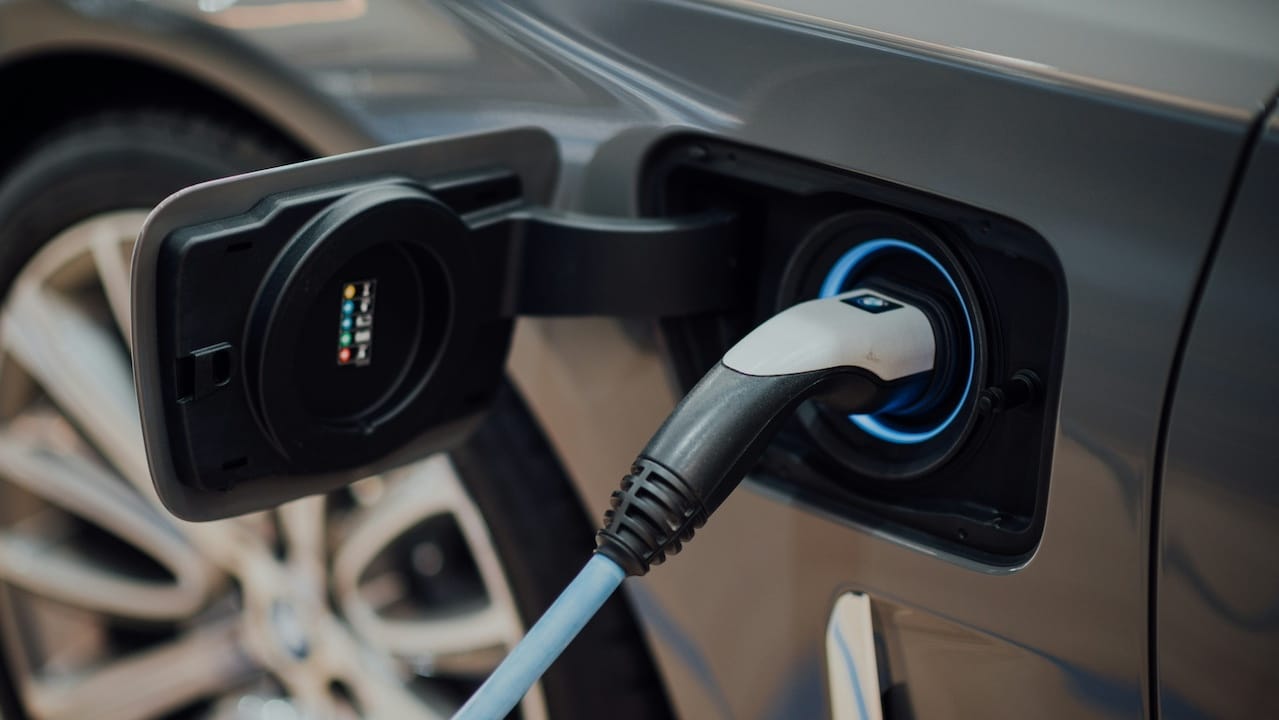Welcome to Climate Tech Canada, where we break down the latest in climate tech each week.
In case you missed it, we dropped another episode of The Climate Cycle last week featuring Wayne McIntyre from Relocalize. We cover everything from food supply chains to robotics and automation to company building. My personal highlight was getting to hear how Wayne breaks down complex systems to find hidden opportunities.
🎧 Listen to the conversation on Apple Podcasts, Spotify, or wherever you listen to podcasts.
This week in climate:
Toronto floods shine a light on Canada’s flood risk
ReliON closes $3M to solve charging reliability
Spring launches new cohort for climate investing
TECH
ReliON raises $3M to bring reliability to EV charging

Source: CHUTTERSNAP
EV charging operations startup ReliON secured $3M in funding last week, led by Diagram Ventures. ReliON is building an end-to-end operations and management solution for EV charging operators and is the first company incubated out of Diagram Ventures’ ClimateTech fund.
Reliable EV charging is a complex problem due to issues with software, hardware, network connections, weather, vandalism and more. On top of this, charging operators often have chargers from different manufacturers on their network, each with their own portal, data, etc. and limited integrations between them.
ReliON is aiming to solve this with an end-to-end solution that’s tailor-made for the unique challenges EV charging operators are facing, helping them identify and diagnose problems and deploy technicians.
Why it matters: A 2022 study by NRCan found that 5% of fast chargers were offline and 11% of charging sessions failed, while others say charging unreliability rates are as high as 21%.
For individuals, reliable charging is one of the main hurdles in EV adoption by increasing range anxiety and creating a steeper learning curve for new EV owners. On the commercial side, downtime at chargers can mean missed deliveries, disrupted schedules, and increased costs for businesses.
Better reliability can also avoid the need for more than 150,000 additional public chargers and increases utilization rates for network operators.
Setting standards: Reliability standards are increasingly being tied to government supports for EV infrastructure. In the US, federally funded charging infrastructure must meet a 97% reliability rate, while the UK mandates 99% reliability.
What's next: ReliON plans to use the funding to grow the team and expand its network of field technicians in order to meet growing demand.
SPONSORED BY GREEN ECONOMY LAW
Your partner in climate tech startup law
This week's issue is sponsored by Green Economy Law, a boutique Toronto-based law firm providing general and specialized legal services for startups and non-profit organizations in climate tech and other green economy sectors.
Sign up for their monthly newsletter to keep up with developments in Canadian climate and environmental law.
And if you're looking for legal assistance with your green business or organization, you can book a free 15 minute consultation here.
CLIMATE CAPITAL
♻ Cyclic Materials received a strategic equity investment for an undisclosed amount from Microsoft's Climate Innovation Fund. The investment is part of the fund's focus on creating a circular economy and recycling rare earth elements from hard drives. Cyclic Materials recycles rare earth elements and has developed a technology specifically aimed at recovering materials from end-of-life hard drives.
🛥 Acel Power raised $13.6M in Series A funding for their electric outboard boat engines. United Arab Emirates-based Tau Capital led the round. Acel Power designs and manufactures electric outboard engines and integrated monitoring. The funding will be used to drive expansion efforts including mass production capacity and new, higher-horsepower products.
💰 B.C.’s Centre for Innovation and Clean Energy announced $7.6 in non-dilutive funding for clean energy and climate solutions. Recipients include:
Fuse Power Management - vehicle-to-grid solution for buses
pH7 Technologies - electrolyzer-enabled extraction process for copper
CO280 Solutions - large-scale carbon removal projects
MILESTONES & PRODUCT
🏆 Check out the semi-finalists for Canada’s Agricultural Methane Reduction Challenge, including AbacusBio which uses gene selection based on methane footprint and Ample Agriculture’s methane-fighting feed additive.
🥑 FoodHero expanded its partnership with grocery retailer Empire, bringing its food waste-fighting app to over 500 stores across Canada.
🚚 Sustainable logistics company GoBolt delivered more than 350,000 deliveries with their electric vehicles in the first half of the year, marking 484% year-over-year growth.
🏭 Entropy will explore a partnership with methanol maker Methanex to deploy their modular post-combustion carbon capture technology.
NEWS
Toronto floods expose Canada’s $2.9B climate risk

Photo by Kelly Sikkema on Unsplash
Toronto was hit by a torrential downpour last week, leading to flooding across the city, shutting down Union Station and leaving thousands without power. The total damages from the storm could exceed $1B according to the Insurance Bureau of Canada.
At risk: Severe weather is becoming more frequent and costly due to climate change. And we’re not well equipped.
Much of Ontario’s infrastructure is at risk, according to a report commissioned by the Ontario Ministry of the Environment. All infrastructure assets across the province had “Medium” risk profiles or higher and every region in the province is currently facing “High” risks for stormwater management.
2 in 10 homes in Canada are at risk of flooding with a potential price tag of $2.9B per year. Insurance companies are taking notice, no longer offering coverage in high risk zones.
A costly trend: According to research group RAND, the US used to experience just three billion-dollar weather disasters a year. That’s gone up to 6 in the 2000s, 13 in the 2010s, 20 in the last five years, and just hit 28 in 2023. Meanwhile, 56% of Canadian businesses say they took a hit to profitability from extreme weather events last year, and more than 90% fear they’ll be affected in the year ahead.
The bottom line: The price tag for infrastructure upgrades can be politically unpopular, but they pay off in the long run. In Ontario, a proactive approach to adaptation could save more than $1 billion.
IN THE NEWS
🚫 Quebec plans ICE ban: Quebec plans to ban the sale of new internal combustion engine vehicles by 2035. The draft regulations go further than the federal zero-emission vehicles standard by also banning plug-in hybrids. The announcement is a clear message that Quebec is still behind electric vehicles amid global debates on EV demand.
🚙 Ford delays EV production: Ford announced it will start making its Super Duty pickups in Oakville instead of electric vehicles. The company previously planned to make EVs at the plant starting in 2027, but now says that won’t happen until later “this decade”. The provincial and federal governments had put forward more than half a billion to help Ford convert the plant to EV production.
🏗️ Green buildings strategy: The feds introduced their Canada Green Buildings Strategy, aimed at accelerating sustainable building practices and charting a path to net-zero emissions by 2050. While the new strategy includes targets to phase out oil heating and replacing air conditioning with heat pumps, it mainly re-packaged previously announced programs. Notably, the new strategy didn’t include performance standards for building heating or phase-outs of other fossil fuel heating fuels.
🚎 Long-term transit funding: The federal government also announced a new permanent public transit fund backed by $30B over 10 years. The fund includes streams for existing infrastructure, major cities, and “key priorities” like active transportation, rural and Indigenous communities, and school transportation. The fund adds much-needed support for transit agencies, but doesn’t include operational funding, where transit authorities often struggle the most. Swift processing will also be key, as delays in similar transit programs have left municipalities and electric bus makers in the dark.
🔥 Wildfires threaten oilsands: Wildfires are threatening oilsands operations in Alberta, coming within 10 km of some sites and causing producers to pull back non-essential workers or in some cases limit production. Fossil fuel producers are increasingly exposed to the climate risks they are helping create, with more than 40% of the world’s oil and gas reserves “highly exposed”. The wildfires, which are becoming more common and more impactful due to climate change, ironically boosted prices for Canadian oil.
BIG PICTURE
What a Harris presidency could mean for the climate
Canada isn’t the only one struggling to permit new mines
A pulse check on raising climate VC funds
The UK plans a “rooftop revolution” for solar
More Sustainable Aviation Fuel projects are being cancelled than started
Trump can’t stop EVs according to ChargePoint CEO
COMMUNITY
💡 Invest Together in Climate Innovation: Hosted by Spring, this programs helps early-stage climate ventures get investment ready and aspiring impact investors learn how to evaluate purpose-driven ventures. Founders | Investors.
🚀 Better Buildings Adoption Accelerator: Hosted by MaRS, the accelerator aims to recruit six Canadian ventures that are solving the building industry’s greatest decarbonization challenges and support their commercial deployments to broad-scale adoption. Apply by August 12th.
💻 Chief of Staff & Director of Business Development at Coastal Carbon. This is a unique opportunity to help shape the company’s commercial strategy, team build out, and operating systems as they scale their remote earth monitoring platform. See more open roles.
Share Climate Tech Canada with your network and help us grow! Make {{ rp_num_referrals_until_next_milestone }} referrals to get a {{ rp_next_milestone_name }}. See all rewards here.
Thanks for reading,
Justin
